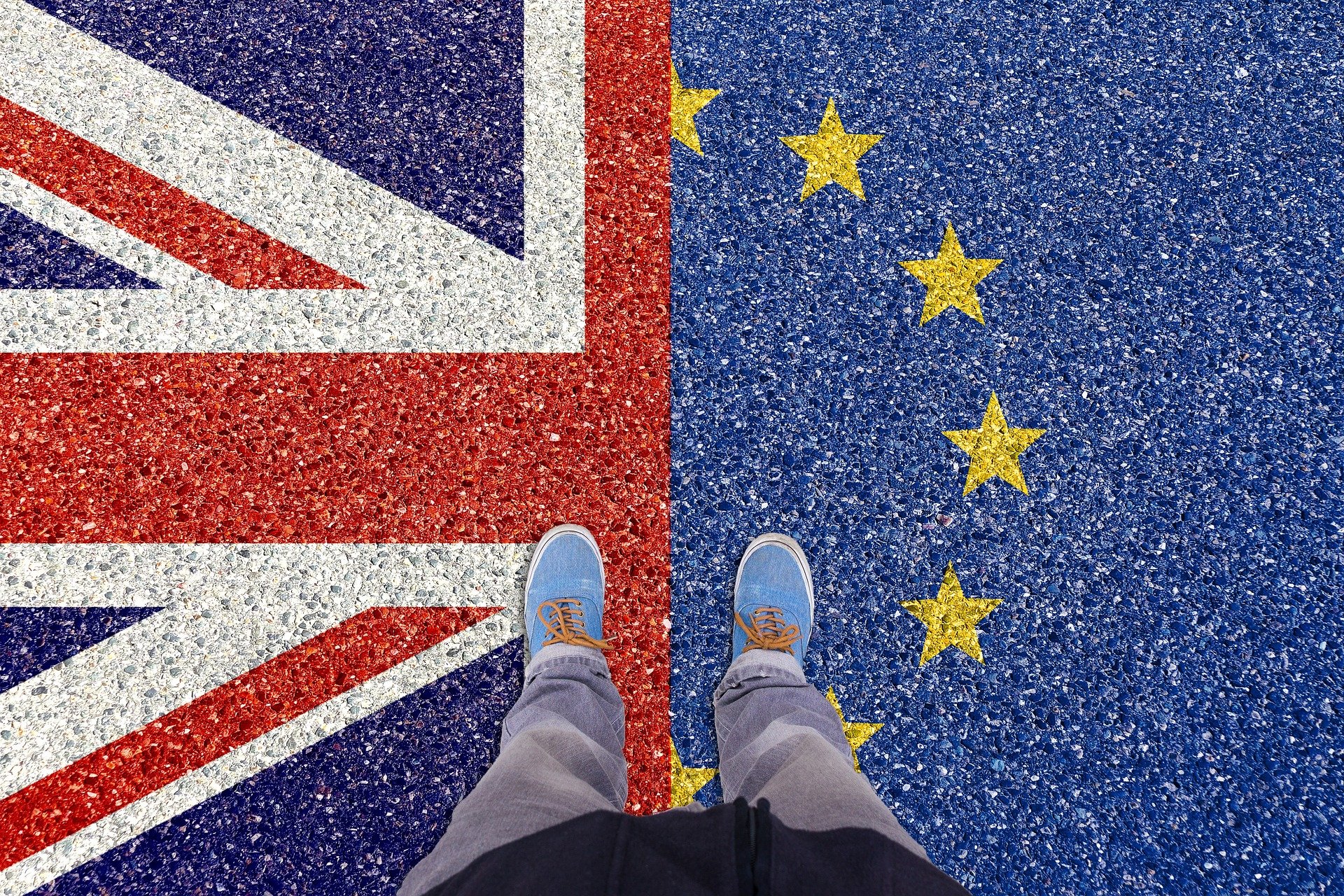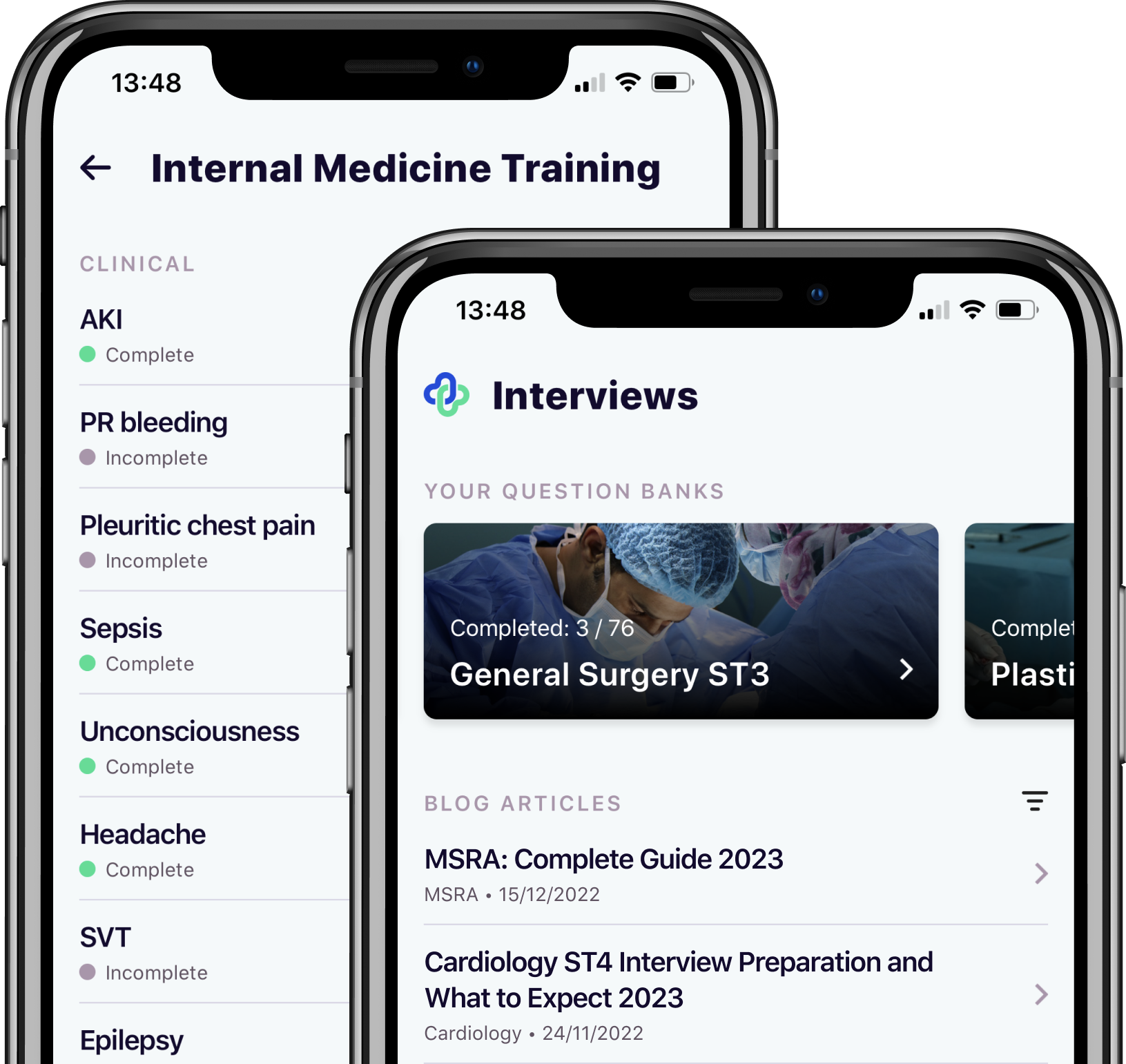
PLAB After Brexit
The Professional and Linguistic Assessments Board (PLAB) test assesses the knowledge and skills of doctors who qualified outside of the UK, as part of the General Medical Council’s (GMC’s) registration process. All doctors practising medicine in the UK must be registered with the GMC.
Following the end of the Brexit transition period, you may be wondering what changes have been introduced for doctors who qualified outside of the UK, how it will affect you personally and if you’ll now be required to complete a PLAB test as part of the registration process. Whether you’re already working in the NHS or looking to in the future, the following will provide guidance on the implications of Brexit on your medical registration and the requirements for PLAB after Brexit.
Additionally, our ‘PLAB Guide 2023’ and ‘PLAB Pathway / Route’ blogs will provide you with key information about the PLAB exam, including key dates, what to expect and how to prepare effectively.
GMC news for doctors
Following the end of the Brexit transition period, the GMC has published ‘Brexit – Guide to registration for doctors’, which outlines the changes to the registration process if you hold a non-UK qualification. This includes:
- Information for EU / EEA nationals already working in the NHS. EEA – the European Economic Area – includes all countries in the EU, Iceland, Liechtenstein and Norway.
- Guidance for registration applicants, either those with EEA or Swiss medical qualifications, or those with medical qualifications from outside of the UK, EEA and Switzerland.
- Information for UK qualified doctors who wish to work in the EEA after Brexit.
You can find more about the information provided by the GMC in relation to each of these areas below.
EU nationals working in the NHS
The GMC has confirmed that if you’re an EU or EEA national working in the NHS, with provisional or full registration, then your registration status will not be affected by Brexit. In addition to this, if you currently hold a provisional registration and wish to apply for full, then you are able to do so, under the rules which were in place when your provisional registration was granted.
Anyone with temporary or occasional registration will be contacted by the GMC to confirm the options available.

What will happen to EU doctors after Brexit?
For EEA nationals applying for GMC registration there are some changes as a result of Brexit, including professional qualifications no longer benefiting from automatic recognition. Your medical qualification, rather than your nationality, will determine the type of application and evidence that you need to provide for your GMC application.
If you hold a ‘relevant European qualification’ this will be accepted as evidence of your knowledge and skills, meaning you won’t be required to complete the PLAB test. You can check the list of ‘relevant European qualifications’ provided by the GMC here; if yours isn’t included, it’s likely that you will be required to complete the PLAB assessment as part of your registration.
The GMC also outlines the following requirements for EEA nationals applying for registration:
- Your medical qualification must be independently verified by the Educational Commission for Foreign Medical Graduates (more information in the ECFMG verification for PLAB section below)
- You must provide evidence of your knowledge of English
- You must ensure that your insurance and indemnity provides ‘adequate cover to practise in the UK’
You can find out more about each of these requirements here.
How will doctors be affected after Brexit?
The following is information provided by the GMC in relation to those who don’t fall into the category above:
Those with a medical qualification from outside of the UK, EEA and Switzerland
As mentioned previously, it is your medical qualification, rather than your nationality, that will determine the evidence you need to provide for your GMC registration. If you have a medical qualification from outside of the UK, EEA and Switzerland, or if you don’t hold a ‘relevant European qualification’, the main difference from those that do is that your qualification can’t be used as your evidence of medical knowledge and skills. Rather, you’ll need to demonstrate this as part of the application process, usually by undertaking the PLAB test. There are some exceptions to this, acceptable postgraduate qualifications or sponsorship by an approved UK sponsor, which you can find on the GMC’s website here.
You must also meet the other requirements of registration, listed above, which are as follows:
- Your medical qualification must be independently verified by the Educational Commission for Foreign Medical Graduates (more information in the ECFMG verification for PLAB section below)
- You must provide evidence of your knowledge of English
- You must ensure that your insurance and indemnity provides ‘adequate cover to practise in the UK’
Rules in relation to Switzerland
The GMC has confirmed that following the end of the Brexit transition period, there will be no change for ‘Swiss nationals, UK nationals with Swiss qualifications or UK nationals who are established in Switzerland, and family members of Swiss nationals’. Due to the Citizens’ Rights agreement between the UK and Switzerland, registration for ‘qualifying Swiss applicants’ will be unchanged for the next four years at least. However, the application process for ‘qualifying Swiss applicants’ will be different to other doctors; you can find more information in the GMC’s Qualifying Swiss Applicants guide.
UK qualified doctors who want to work in the EEA
Similar to EEA nationals wishing to work in the UK following Brexit, doctors with UK medical qualifications will no longer benefit from automatic recognition of their qualifications in ‘most EEA countries’. The registration process to work in the EEA varies depending on the country, so the GMC advises applicants to contact the regulator in the country in which you wish to apply, and provide contact details here.
ECFMG verification for PLAB
If you hold a non-UK medical qualification, before registration with the GMC can be granted, you’ll need to have at least your primary medical qualification verified by the Education Commission for Foreign Medical Graduates (ECFMG). As mentioned in the previous two sections, this includes both ‘relevant European qualifications’ and qualifications from outside of the EEA or Switzerland. Depending on the type of registration you’re applying for, you may also need to have further qualification verified, in addition to your primary medical qualification.
Through their online system – the Electronic Portfolio of International Credentials – the ECFMG will verify with your awarding institution that your qualification is genuine. You can find out more information about the verification process, including why it’s required, the cost involved and which qualifications you will need to have verified, on the GMC’s website.
Deal Reassurance
As well as changes to registration for doctors, the end of the Brexit transition period indisputably brings changes for medical practise more broadly, with the implications for the NHS and its staff a key concern during the Brexit negotiations.
The UK government has provided some reassurances in relation to the health and social care sectors, including areas such as medical supplies, reciprocal healthcare and for workers.
Brexit Medicine shortage
The UK government released guidance in August and November 2020, requesting that suppliers have a ‘target level of 6 weeks’ total stock on UK soil’, to ensure the continuity of medical supplies following the end of the Brexit transition period. Despite initial concerns, there have currently been no major shortage of supplies as a result of Brexit; however, this is a developing situation, so there is the possibility that this could change under the new agreement.
Professional qualifications
The information provided by the government also confirms an agreement which allows professionals regulators, i.e. the GMC, to cooperate with EU equivalents to form ‘Mutual Recognition Agreements (MRA)’ in relation to professional qualifications. ‘This allows regulators, once our 2-year standstill period comes to an end, the flexibility to negotiate MRAs or use existing third country recognition routes to recognise EU qualifications’.
EEA workers
Finally, the government has offered some reassurance for EEA nationals who choose to work as a doctor in the UK following Brexit. While ‘all workers arriving from the EEA and non-EEA countries will be subject to the same immigration rules’, from 1 January 2021, the majority of healthcare workers are exempt from the new points-based immigration system and can apply for a Health and Care Worker visa. For EEA nationals who began working in the UK before 1 January 2021, application to the EU Settlement Scheme will ensure that you can continue to work and live in the UK after June 2021.

Take your subscriptions with you
Our mobile app allows you to access your interview and exam question banks wherever you are.





